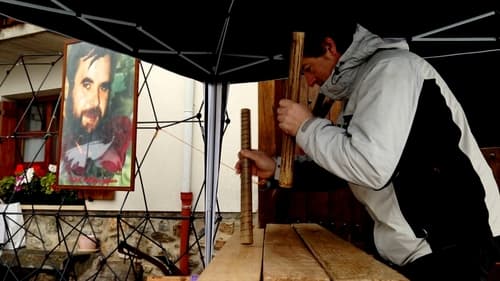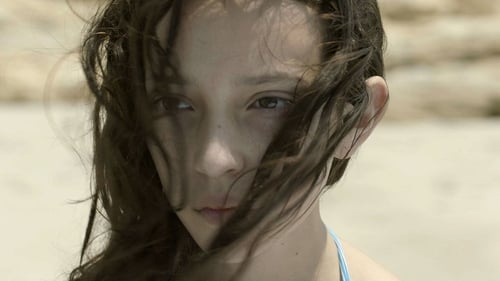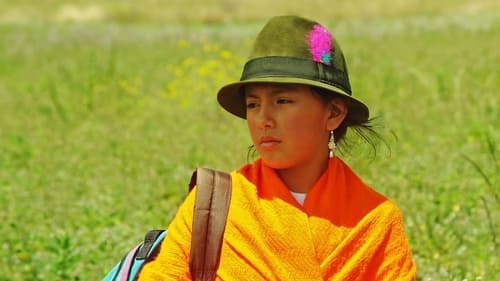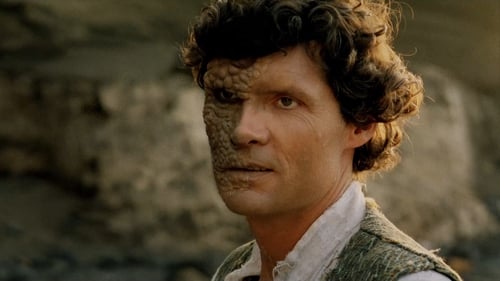Amaia Merino
Nascimento : , San Sebastián, Spain
História
Amaia Merino (San Sebastián, 1970) is an actress, director, writer and editor. She lives in Ecuador, where she works as an editor and screenwriter of non-fiction films. During the last fifteen years he has made feature films such as Blak Mama, Más allá del Mall, Resonancia, En espera, El pan nuestro, 1809-1810 Mientras llega el día y Asier ETA biok (Asier y yo).

Editor
Joxean is not aware of the border in her country. He moves every week to sell pigs. For Kamaru, the border means every obstacle and danger. They both have to fight the same enemy.

Writer
Siblings Amaia and Aitor are about to turn fifty. They have no children. From a very young age they have lived apart from their parents, Kontxi and Iñaki, now retired. One summer they all meet up on the cruise ship 'Fantasía'. On the high seas time seems to have stopped, but beyond the horizon reality continues to forge its way ahead tirelessly.

Writer
Donostia-San Sebastián, Basque Country, Spain, November 26th, 1985, at night. Mikel Zabalza, a young bus driver, is arrested along with other people by the Guardia Civil as part of an operation against the ruthless terrorist gang ETA. When the other detainees are released, they denounce that they have been brutally tortured in the Intxaurrondo facilities. Besides, Mikel is not among them: Mikel has disappeared.

Editor
Donostia-San Sebastián, Basque Country, Spain, November 26th, 1985, at night. Mikel Zabalza, a young bus driver, is arrested along with other people by the Guardia Civil as part of an operation against the ruthless terrorist gang ETA. When the other detainees are released, they denounce that they have been brutally tortured in the Intxaurrondo facilities. Besides, Mikel is not among them: Mikel has disappeared.

Director
Donostia-San Sebastián, Basque Country, Spain, November 26th, 1985, at night. Mikel Zabalza, a young bus driver, is arrested along with other people by the Guardia Civil as part of an operation against the ruthless terrorist gang ETA. When the other detainees are released, they denounce that they have been brutally tortured in the Intxaurrondo facilities. Besides, Mikel is not among them: Mikel has disappeared.

Editor
A beautiful woman turns to prostitution. She must surrender her income to the leader of a human trafficking ring, but her daughter’s illness and a drug addiction prevent her from delivering her usual share. An unexpected event will give her the opportunity to stop obeying and take justice into her own hands.

Editor
The reality of four rural women in the Metropolitan District of Quito. Despite their pain and difficulties, they have managed to forge a life that in maturity unfolds all the beauty of wisdom.

Director
The reality of four rural women in the Metropolitan District of Quito. Despite their pain and difficulties, they have managed to forge a life that in maturity unfolds all the beauty of wisdom.

The life and works of Ecuadorian writer Marcelo Chiriboga, a key figure of the Latin American literature and member of the “boom” generation. Through interviews, visits to different cities, archival footage and his most important book, a puzzle is woven that blurs the boundaries between reality and fiction.

Editor
Agustín escaped to the moor to finish his thesis, he spends his days writing, feeding himself and giving small walks through a place covered by scrubland, steep cliffs and abyss that remain hidden behind an almost permanent fog. Everything changes when Lucía and her boyfriend Santiago arrive and set up their tent next to Augustín’s. What began as a few quiet days in the countryside gradually become a silent nightmare.

Editor
Starting her senior year in high school, Sara doesn't have many friends and is caught between an overbearing mother, and a more understanding father. With uneasiness at school and tension in the household, Sara escapes to smoke in a little alley alone – that is – until Andrea, a new classmate, arrives. A close friendship develops to all that can see, but behind closed doors, an intimate relationship unfolds, which, when discovered, throws everything into disarray.

Mamá
Alba, 11 years old, passes her days in silence. She loves little animals. She has learned to cope with her mother's illness, helping her to use the bathroom. Alba plays silently so that her mother can rest during the day. One night Alba's mother gets worse, and has to be taken to the hospital. With no one else to take care of her, Alba is sent to live with her father, who she hasn't seen since she was three years old. Living with her father is almost unbearable. Embarrassment, her first kiss, visits to mother in the hospital, Edgar's tender efforts to get close to her, and bullying at school; these are some of the experiences that pave Alba's journey to puberty and to self-acceptance.

Editor
The documentary chronicles the 139 years of the ex penitentiary García Moreno in Quito, Ecuador, and traces left by the inmates to be transferred to the new prison in the province of Cotopaxi.

Editor
Vengo Volviendo tells the story of Ismael, who was raised by his grandmother and seeks to leave Ecuador in order to migrate to the United States. Along the way, he encounters a host of interesting people and learns of some interesting tales.

Editor
Asier and I grew up in the Basque Country. But one day he disappeared, later I found out he had joined ETA.

Producer
Asier and I grew up in the Basque Country. But one day he disappeared, later I found out he had joined ETA.

Writer
Asier and I grew up in the Basque Country. But one day he disappeared, later I found out he had joined ETA.

Director
Asier and I grew up in the Basque Country. But one day he disappeared, later I found out he had joined ETA.

Editor
Raul Lara, an Ecuadorian luthier, works around seven months in the construction of each instrument. Sometimes staying for four consecutive months inside his workshop, place in which time and space are surreal. The guitar becomes alive and receives its soul in here.

Editor
Between the city and the countryside, the subtle and modern forms of slavery unfold. A girl waits for the pick-up truck that will transport her to the city. Once there, amidst a never-ending row of walls and fences, she peeks into the entrance to a school. Lined up and in uniform, those girls are not the ones Carmen will join.

Editor
Is there an audience for Latin American movies? These are some of the questions posed by an Ecuadorian filmmaker whose latest movie was a commercial flop. He embarks on a query to find answers to his questions and relief for his despair. His research leads him to a giant contraband market in the port city of Guayaquil, where pirated movies from all over the world are sold for one dollar each. Here, he discovers a number of Ecuadorian low budget movies produced by amateurs, with titles he had never heard of before: from action packed productions to evangelical melodramas.

Assistant Director
Is there an audience for Latin American movies? These are some of the questions posed by an Ecuadorian filmmaker whose latest movie was a commercial flop. He embarks on a query to find answers to his questions and relief for his despair. His research leads him to a giant contraband market in the port city of Guayaquil, where pirated movies from all over the world are sold for one dollar each. Here, he discovers a number of Ecuadorian low budget movies produced by amateurs, with titles he had never heard of before: from action packed productions to evangelical melodramas.

Writer
Is there an audience for Latin American movies? These are some of the questions posed by an Ecuadorian filmmaker whose latest movie was a commercial flop. He embarks on a query to find answers to his questions and relief for his despair. His research leads him to a giant contraband market in the port city of Guayaquil, where pirated movies from all over the world are sold for one dollar each. Here, he discovers a number of Ecuadorian low budget movies produced by amateurs, with titles he had never heard of before: from action packed productions to evangelical melodramas.

Editor
Every city has its secrets, but it is probably inside houses, behind their silent walls, where they are most intense and human. The Alabado House was built in 1671 as part of Quito’s colonial Old City, surviving centuries of earthquakes, poverty and decay. Over the past five years, dozens of manual laborers have been working to restore it. But its miraculous beauty conceals a long and tragic history. For it was the oppressed indigenous masses who built the Old City, the largest in Latin America.

Bámbola
Three paper recyclers depart on a journey to the Door of Forgiveness to pay tribute to Virgin Wolf, a mysterious Andean deity.

Editor
Jonathan and Romario are two Afro-Ecuadorian children from the Chota Valley, one of the poorest regions of Ecuador. Their fate can be one of two: to become world-class footballers like Ulises de la Cruz, Chucho Benitez and Antonio Valencia, or farmers like Darwin. This documentary reveals the lack of opportunities, discrimination, and economic and social segregation that black communities face in Ecuador.

Writer
Jonathan and Romario are two Afro-Ecuadorian children from the Chota Valley, one of the poorest regions of Ecuador. Their fate can be one of two: to become world-class footballers like Ulises de la Cruz, Chucho Benitez and Antonio Valencia, or farmers like Darwin. This documentary reveals the lack of opportunities, discrimination, and economic and social segregation that black communities face in Ecuador.

Editor
November 7th, 2001. After a seventy years absence, the Ecuadorian national soccer team is close to qualifying for the first time to a Soccer World Cup. This documentary follows the events that took place during that historic date, when a whole country lived under the shadow of a soccer game.

Writer
November 7th, 2001. After a seventy years absence, the Ecuadorian national soccer team is close to qualifying for the first time to a Soccer World Cup. This documentary follows the events that took place during that historic date, when a whole country lived under the shadow of a soccer game.

Marina
One day five women from Quito, friends in their teens, decide to get back together after fourteen years. Helena is waiting for her second child, Marina lives the ups and downs of infidelity, Diana, an early widow, shares her loneliness with her 15 year old daughter and Tamara has not abandoned the random life of nightclubs, men and drugs. The purpose of their get-together is to visit their old classmate, Alejandra, who is consumed by an illness.

Editor
1809-1810: mientras llega el día is a 2004 Ecuadorian historical-dramatic film, directed by Camilo Luzuriaga and starring Marilú Vaca, Aristides Vargas and Gonzalo Gonzalo. The plot is based on the book by Juan Valdano, and revolves around the events that took place in the city of Quito between August 10, 1809, when the First Cry of Independence took place in the Spanish colony of the Presidency of Quito, and on August 2, 1810, when the Massacre of the Próceres occurred in the hands of the peninsular authorities.

Makeup & Hair Assistant
Between Marx and a Naked Woman is the adaptation of a novel written by Ecuadorian Poet, Jorge Enrique Adoum. The scenes of this film insert us into Ecuador in the sixties, when the electoral struggle, convoked by the military government for a new return to democracy, is in full force. Galvez’s left-wing party must elect its candidate, but he is shoved to one side because of the criticism of the party’s political leadership. While his struggle becomes bitter, he must withstand the frustration of not being able to offer full love to Margaramaría, another party member.

Girl Who Sings
A grotesquely disfigured harpooner called Iguana is severely mistreated by his fellow sailors on a whaling ship in the 19th century. One night he escapes and takes up residence on a remote island. He makes himself ruler of the island and declares war on mankind. Anyone unfortunate enough to wind up on the island with Iguana is subjected to his cruel tyranny.










